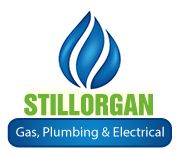Water Leak Detection
Water Leak Detection Service in DubliN
Water leak detection is finding and locating leaks in water pipes, tanks, or fixtures that can cause water loss, waste, or damage. Water leak detection is essential for preserving water resources and preventing property damage.
Water is a precious and finite resource. However, Ireland has a high water leakage rate due to its ageing and deteriorating water infrastructure. According to Uisce Éireann (formerly Irish Water), the national water utility, about 43% of the treated water supply is lost through leaks in the public network.
If left undetected or unrepaired, water leaks can cause significant property damage and health risks. Water leaks can lead to structural damage, mould growth, electrical hazards, flooding, or water supply contamination. Water leaks can also increase the water bills for homeowners or businesses, as they have to pay for the excess water usage. It's been estimated that a small leak of 1 litre per minute can waste up to 1,440 litres of water, costing about €1.50 per day or €547 per day. A more significant leak of 10 litres per minute can waste up to 14,400 litres of water daily, costing about €15 per day or €5,475 per year.
Water Leak Detection Company
Stillorgan Gas, Plumbing & Electrical offer expert water leak detection services to commercial and domestic clients all over Dublin. Our engineers use the latest equipment to discover water leaks in and underneath your property. Our non-invasive underground water leak detector system uses a combination of systems, including:
Water Leak Detection Company
-
Acoustic listening devices: These devices use sound waves to locate the source of a leak.
-
Pressure testing: This method involves applying water or air pressure to a pipe or a section of a pipe to measure the pressure drop caused by a leak.
-
Tracer gas testing: This method involves injecting a non-toxic gas, such as helium or hydrogen, into a pipe or a system and using a gas detector to trace the gas escaping from a leak.
-
Thermal imaging: This method uses an infrared camera to capture the temperature difference between a leaking pipe and its surroundings.
Water Leak Detection FAQ
-
What are the consequences of not addressing a water leak?
Water leaks are a common problem with severe consequences if left untreated. Some of the potential effects of water leaks are:
Increased water bills: Water leaks can cause a significant increase in your water consumption and bills, as you have to pay for the excess water that is wasted.
Property damage: Water leaks can cause damage to your furniture, appliances, walls, floors, ceilings, and foundations. Water can seep into the cracks and crevices of your property, causing warping, swelling, rotting, or corrosion. Water can also cause electrical hazards, such as short circuits, sparks, or shocks. Water damage can reduce the value and appearance of your property and require costly repairs or replacements.
Mould growth: Water leaks can create a moist and humid environment ideal for mould growth. Mould is a fungus that can grow on various surfaces and materials, such as wood, drywall, carpet, or fabric. Mould can produce spores that can spread through the air and cause allergic reactions, respiratory problems, skin irritations, or infections. Mould can also produce toxins that can affect the nervous system, immune system, or liver. Mould growth can harm your health and property and require professional removal and remediation.
Early detection is essential in preventing these problems from occurring. Call us today.
-
What problems can early water leak detection prevent?
Early water leak detection can prevent many problems that can result from water leaks, such as:
- Increased water bills
- Property damage
- Mould growth
